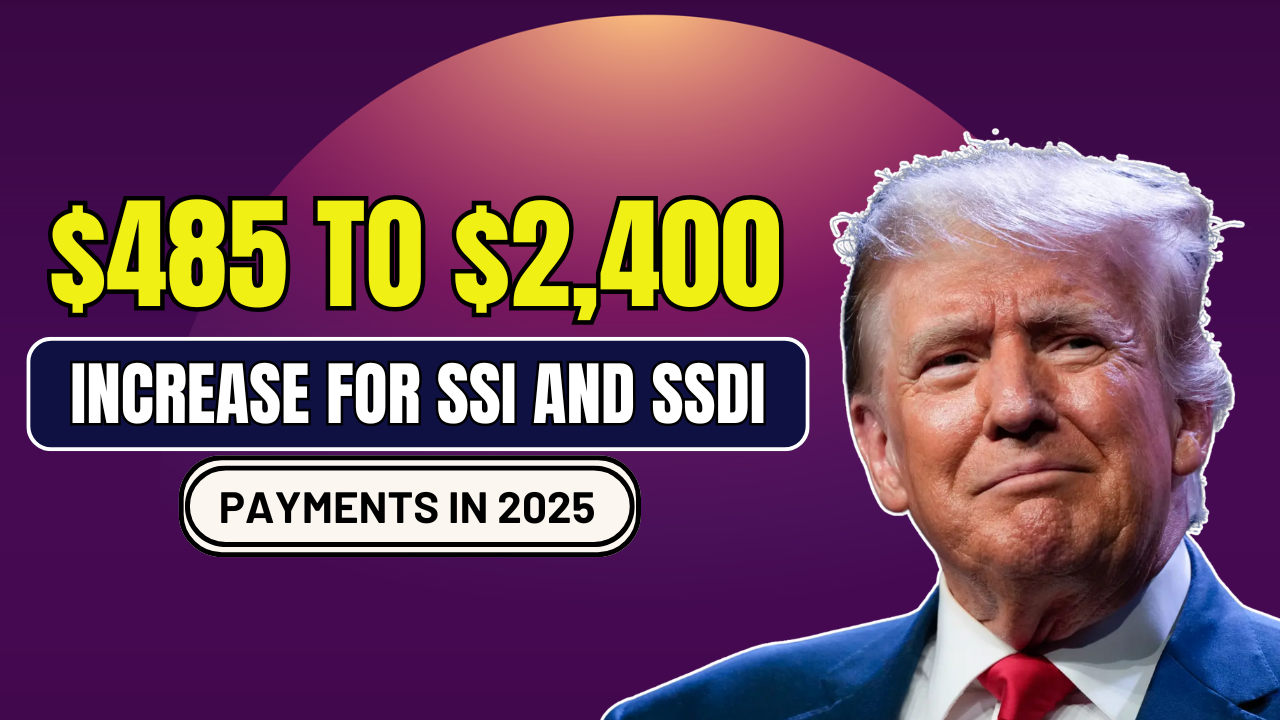SASSA R500 Grant Payment 2025: In 2025, South Africa’s Social Security Agency (SASSA) is making significant adjustments to its grant system, including an increase in the Child Support Grant to R500 per child per month. These changes aim to provide much-needed financial support to families, particularly those living in poverty. For millions of South Africans, this update is a step toward alleviating the growing financial burdens caused by inflation and rising living costs.
This article explores everything you need to know about the SASSA R500 Grant Payment 2025, from eligibility criteria to payment dates and other essential updates. Whether you’re a caregiver, a grant recipient, or simply seeking to understand the changes, this guide will provide you with all the details you need.
Overview of SASSA R500 Grant Payment 2025
| Feature | Details |
| Grant Increase | R500 per child per month under the Child Support Grant |
| Effective Date | February 6, 2025 |
| Eligibility Age | Children under 18 years of age |
| Residency Requirements | Caregiver and child must reside in South Africa |
| Income Threshold (Single Caregiver) | Annual income must not exceed R60,000 |
| Income Threshold (Married Couple) | Combined annual income must not exceed R120,000 |
| Payment Frequency | Monthly, starting from February 2025 |
| Additional Grants | Foster Child Grant (R1,130) and Care Dependency Grant (R2,090) |
What Is the SASSA R500 Grant Payment?
The SASSA R500 Grant Payment refers to the updated amount provided through the Child Support Grant program. This increase is designed to help low-income families meet the essential needs of their children, including food, education, healthcare, and housing.
Currently, the Child Support Grant supports over 13 million children across South Africa, making it one of the country’s most vital financial assistance programs. While the increase to R500 per child per month is a welcome change, many argue that it remains insufficient to meet the rising cost of living and food prices.
This grant plays a critical role in reducing child poverty and improving the quality of life for vulnerable families. By offering caregivers additional financial support, the government hopes to ease the burden on households struggling to make ends meet.
Eligibility for the SASSA R500 Grant Payment
To qualify for the SASSA R500 Grant Payment, caregivers must meet the following requirements:
1. Child’s Age
The grant is available for children under the age of 18. Caregivers can receive support for each child in their care until the child turns 18.
2. Residency and Citizenship
Both the caregiver and the child must reside in South Africa. Additionally, the caregiver must be a South African citizen, permanent resident, or recognized refugee.
3. Income Thresholds
Eligibility is determined by income levels to ensure the grants reach families in need:
- Single Caregiver: Annual income must not exceed R60,000.
- Married Caregivers: Combined household income must not exceed R120,000 per year.
4. Caregiver Status
The applicant must be the primary caregiver of the child, which includes parents, legal guardians, or relatives. Proof of caregiving responsibilities, such as a birth certificate or court documents, is required during the application process.
Key Features of the Child Support Grant
The Child Support Grant has long been a cornerstone of SASSA’s efforts to support vulnerable families. Here are some of the key features:
- Payment Frequency: The grant is paid monthly, usually during the first week of each month.
- Grant Amount: Starting February 2025, caregivers will receive R500 per child every month.
- Focus on Essentials: The grant is meant to cover essential needs such as food, shelter, healthcare, and education.
While the grant amount still falls below the food poverty line, it provides a lifeline for families who would otherwise struggle to provide for their children’s basic needs.
Other SASSA Grants in 2025
In addition to the Child Support Grant, SASSA offers several other grants to support families and individuals with unique needs:
1. Foster Child Grant
- Amount: R1,130 per month
- Eligibility: Caregivers of children placed in foster care by court order
2. Care Dependency Grant
- Amount: R2,090 per month
- Eligibility: Caregivers of children with severe disabilities who require full-time care
These grants provide targeted assistance to families dealing with specific challenges, ensuring that all children receive the care and resources they need.
Payment Dates for SASSA R500 Grant in 2025
SASSA has updated its payment schedule for 2025 to ensure timely disbursements. Here are the key dates for the Child Support Grant:
- February Payment: February 6, 2025
- March Payment: March 5, 2025
Payments are typically distributed during the first week of each month. Caregivers should ensure their banking details are accurate and up to date with SASSA to avoid delays.
Why Is the R500 Grant Increase Significant?
The increase in the Child Support Grant is a vital step in addressing child poverty in South Africa. Here’s why this change is important:
1. Reducing Child Poverty
By providing caregivers with additional financial resources, the grant helps ensure that children have access to essentials like nutritious food, proper healthcare, and education.
2. Supporting Families in Need
Low-income families often struggle to meet basic expenses. The grant provides much-needed relief, allowing caregivers to focus on improving their quality of life.
3. Adapting to Inflation
The increase accounts for rising living costs and inflation, helping families navigate financial challenges more effectively.
However, advocacy groups continue to push for further increases, arguing that the current amount is still insufficient to cover the full cost of raising a child.
How to Apply for the SASSA Child Support Grant
If you are eligible for the SASSA R500 Grant Payment, the application process is straightforward:
- Visit a SASSA Office: Bring your South African ID, proof of income, and the child’s birth certificate.
- Fill Out the Application Form: Provide accurate information about your income, caregiving status, and residency.
- Submit Documentation: Include proof of caregiving responsibilities, such as court documents or school records.
- Await Approval: SASSA will review your application and notify you of the outcome. Approved applicants will receive their grant payments monthly.
FAQs About SASSA R500 Grant Payment 2025
Who is eligible for the R500 Child Support Grant?
Caregivers of children under 18 who meet SASSA’s income and residency criteria are eligible.
When will the R500 payments start?
The new payment amount takes effect on February 6, 2025.
How much will I receive per child?
You will receive R500 per child each month starting February 2025.
Can I qualify for other grants alongside the Child Support Grant?
Yes, you can qualify for additional grants such as the Foster Child Grant or Care Dependency Grant if you meet their eligibility criteria.
How can I check my SASSA payment status?
You can check your payment status through SASSA’s online portal or by contacting their WhatsApp support number.
Final Thoughts
The SASSA R500 Grant Payment 2025 is a positive development that offers essential financial support to caregivers and children in South Africa. While the increase addresses some of the challenges of poverty, more work is needed to ensure that all families have access to the resources they need to thrive.
If you’re a caregiver, ensure your details with SASSA are up to date to avoid payment delays. For further assistance, visit your nearest SASSA office or consult their website.
Do you have questions or thoughts about the SASSA grant updates? Share your experiences in the comments below and spread this information to others who may benefit from it. Together, we can create greater awareness about the importance of social support systems in South Africa.







